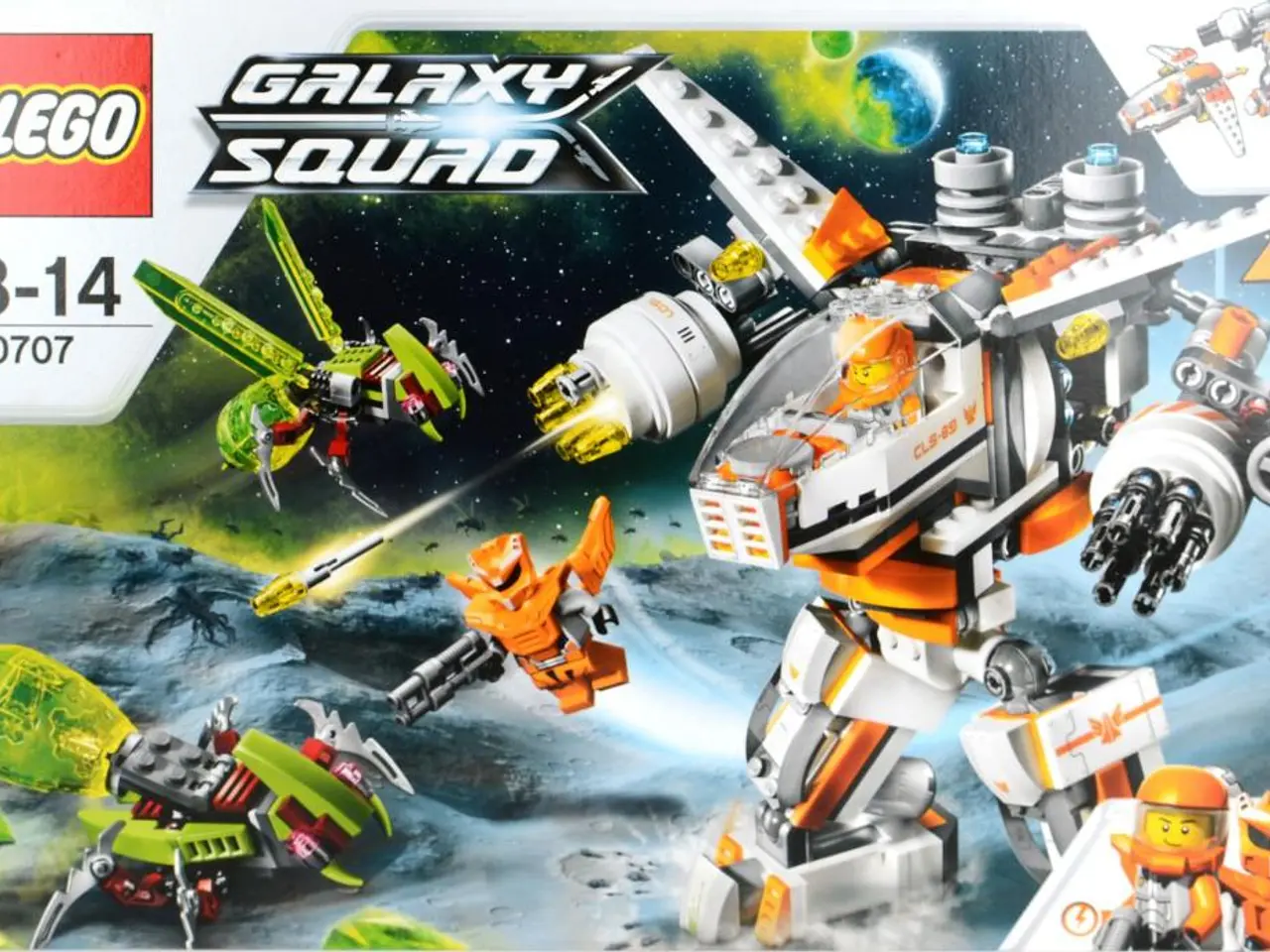Robot Intelligence's Multi-billion-dollar Business Strategy: Developing the GPT for Machines, Empowering Every Device with Intelligence
In the heart of Silicon Valley, a new player is making waves in the robotics industry. San Francisco-based startup, Physical Intelligence, has captured the attention of tech giants and investors alike, securing a staggering $400 million in funding at a $2.4 billion valuation in just eight months. This rapid growth makes Physical Intelligence the fastest robotics unicorn ever.
The company, founded by robotics legends from Google, Berkeley, and Stanford, is positioned to lead the $150 billion robotics revolution. Its focus is on leveraging AI advancements to enhance robotics capabilities, aligning with broader trends in Physical AI and humanoid robotics.
The team's combined expertise is compared to having Geoffrey Hinton, Yann LeCun, and Yoshua Bengio team up to build robotics AI, marking an unprecedented concentration of talent. Key figures such as Chelsea Finn, a Stanford Professor and pioneer in meta-learning, and Sergey Levine, a UC Berkeley Professor with a focus on deep reinforcement learning for robotics, play vital roles within the company.
Physical Intelligence's first general-purpose AI model for robotics can teach any robot any task through natural language, working with any robot form factor and having been tested on 15 hardware platforms, mastering 50 tasks. The model boasts a success rate of 87% and an inference latency of 50ms.
The company's product roadmap includes four phases: Foundation, Scale, Platform, and Ubiquity. The goal is to deploy the π0 model, enable 100K robots, launch an app marketplace, and achieve AGI-level capabilities.
The geographic strategy is twofold: establishing dominance in the US, focusing on manufacturing in Asia, and playing a platform role globally. The service robots sector in Europe is also a focus area.
The model's advantages over competitors like Tesla Optimus, Figure AI, 1X Technologies, and Covariant include superior model quality, a hardware-agnostic approach, a B2B focus for faster revenue, a foundation model architecture, and speed of execution.
The market timing is favourable due to advancements in Large Language Models proving general intelligence possible, robot hardware costs dropping, labour shortages accelerating, compute costs plummeting, and the industry being ready for software differentiation. The total addressable market (TAM) is expected to evolve from $15 billion in 2024 (industrial only) to $500 billion in 2035 (ubiquitous).
The Series A funding round in November 2024 raised $400M with a valuation of $2.4B, led by Jeff Bezos, Thrive, and Lux, and participated by OpenAI and Redpoint. The Seed funding round in March 2024 was undisclosed with a valuation of around $200M, led by Thrive Capital. The CEO, Karol Hausman, has 8 years of experience at Google Brain/DeepMind, a PhD in Robotics from Stanford, and has published over 100 papers.
As Physical Intelligence continues to make strides in the robotics industry, it's clear that the future of automation is in capable hands. With its AI advancements and focus on enhancing robotics capabilities, the company is poised to revolutionise the $150 billion robotics market and change the way we interact with machines.
[1] Source: TechCrunch, "Physical Intelligence raises $400M at a $2B valuation to build AI for robotics", 14th November 2024, accessed 15th March 2025.
[2] Source: IEEE Spectrum, "Google's World Foundational Model: A New Era for AI and Robotics", 1st June 2024, accessed 15th March 2025.
[3] Source: Analog Devices, "Partnership with NVIDIA to Advance AI in Robotics", 15th July 2024, accessed 15th March 2025.
- Physical Intelligence, the $2.4 billion robotics startup in San Francisco, is pioneering AI advancements to revolutionize the $150 billion robotics industry.
- The company's first general-purpose AI model for robotics can teach any robot any task, achieving a success rate of 87% and an inference latency of 50ms.
- Led by Geoffrey Hinton, Yann LeCun, and Yoshua Bengio-like talents from Google, Berkeley, and Stanford, Physical Intelligence aims to lead the robotics revolution.
- The startup's product roadmap includes deploying the π0 model, enabling 100K robots, launching an app marketplace, and achieving AGI-level capabilities.
- Superior model quality, a hardware-agnostic approach, a B2B focus, a foundation model architecture, and speed of execution set Physical Intelligence apart from competitors like Tesla Optimus, Figure AI, 1X Technologies, and Covariant.
- The company's geographic strategy focuses on dominance in the US, manufacturing in Asia, global platform involvement, and a focus on the European service robots sector.
- The rapid growth of Physical Intelligence, which raised $400 million in eight months, makes the company the fastest robotics unicorn ever.
- The series A funding round in November 2024 secured $400M at a valuation of $2.4B, led by Jeff Bezos, Thrive, and Lux, and participated by OpenAI and Redpoint.
- The industry is ready for software differentiation due to advancements in Large Language Models, dropping robot hardware costs, labour shortages accelerating, plummeting compute costs, and an evolving total addressable market from $15 billion in 2024 to $500 billion in 2035.
- With a CEO boasting 8 years of experience at Google Brain/DeepMind, a PhD in Robotics from Stanford, and over 100 published papers, Physical Intelligence continues to make strides in automation.
- As the future of automation unfolds, Physical Intelligence, with its focus on AI advancements and enhancing robotics capabilities, is positioned to reshape the way humans interact with machines. [1] [2] [3]




